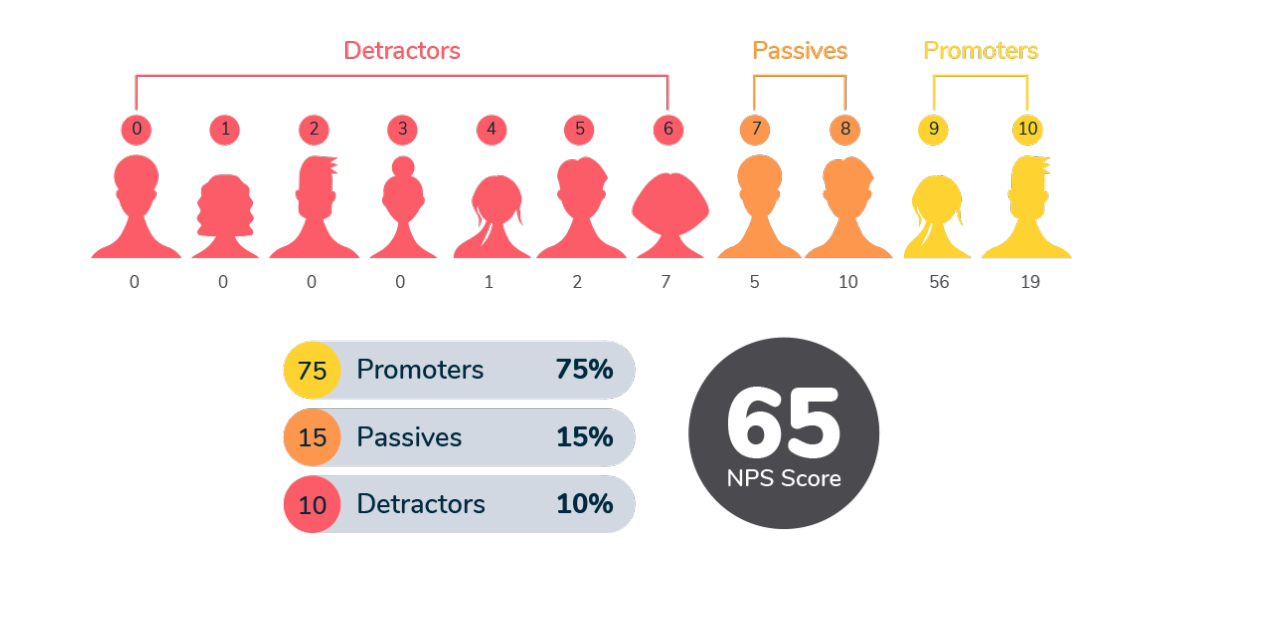Is Net Promoter Score or NPS an accurate customer experience metric?
Customer-centricity is almost always one of the values of successful businesses. In order for the voice of the customer to be heard, they must be given an easy way to share their experiences and ideas. At the same time, developing the customer experience requires clear metrics so that it can be managed.
There are numerous different metrics and methods available for measuring customer experience. One of the most talked about metrics is the Net Promoter Score (NPS). NPS has sparked a lot of debate for and against it. For some of us, NPS is the most important metric for customer experience, while others find it misleading. In this text, I will focus on NPS and go through what it is and what it can tell us about the current state of customer experience.
So, what is this Net Promoter Score (NPS) all about?
It's simply an easy way to find out how willing your customers are to recommend you. In practice, the customer answers the question: "How likely are you to recommend this company to a friend or colleague?" The customer rates their answer on a scale of 0-10.
Once all the customers have answered the survey, you can calculate the NPS with this formula: Promoters - Detractors / Total Respondents x 100 = NPS.

Promoters. These are the customers who answer 9 or 10. They are ready to recommend your company and are likely to purchase your services in the future. Tip: This customer group should be utilized as part of your marketing, for example in the form of customer testimonials.
Passives. If the customer rates you 7 or 8, they are considered passive customers. These customers are satisfied with the service they received but they are not yet committed to you. Tip: Think about how you could better engage these customers.
Detractors. Respondents who rate 0 - 6 are considered detractors. They have been unhappy with the service or product they received and you should find out the specific reasons why from their feedback.
How should the NPS be interpreted?
As previously mentioned, NPS tells us about the customer's willingness to recommend your company or service. The customer is therefore not directly answering how satisfied they are. A low willingness to recommend does not necessarily mean that the customer is unhappy with the service.
American analytics company Profitwell, who specializes in SaaS metrics, studied the effect of NPS on factors such as customer engagement. The study looked at the data of 2000 different companies and their relationship to the NPS score the company received. The study found that the customers of companies with a high NPS were not necessarily more engaged than the customers of companies with a middle-of-the-road NPS.
Based on the study, it could be concluded that there is not a direct correlation between willingness to recommend and engagement from the customer's perspective. So, don't put all your eggs in the NPS-basket when thinking about your customer's engagement.
But what about predicting the growth of a company?
Studies on this have not yet reached a consensus as to whether a high NPS directly correlates to the growth of a company, other than in the number of recommendations. On the other hand, recommendations are a proven effective marketing tool.
The main question is: how can we get the promoters to be our company's ambassadors? How can you get more out of the NPS?
Like said, relying solely on the NPS number is not necessarily a good indicator of growth or a sign of customer satisfaction. With just the NPS, it is also difficult to decide on clear development areas.
However, the NPS question is a useful type of question as part of a wider customer satisfaction survey. If you do decide to do a short NPS survey, we always recommend adding a free-text question alongside it. This way you can get to the root of why the customer would or would not recommend you and take action accordingly.
By addressing the problems that arise and reinforcing the positive experiences, you can truly develop your customer experience. Relying solely on the NPS for measuring and developing customer experience is therefore not advisable. Every company should collect diverse information on customer satisfaction and make customer-centricity a strong part of their everyday operations.
Do you want to have a more detailed view on NPS. Try AI powered Zeffi survey tool with NPS, quick SWOT and sentiment analysis:
